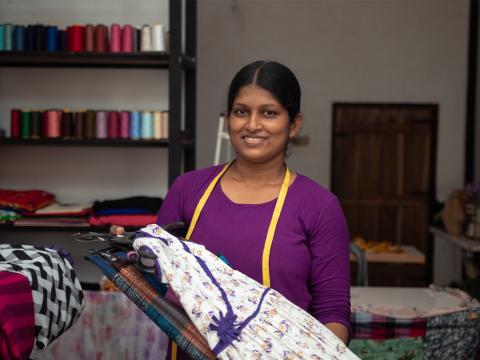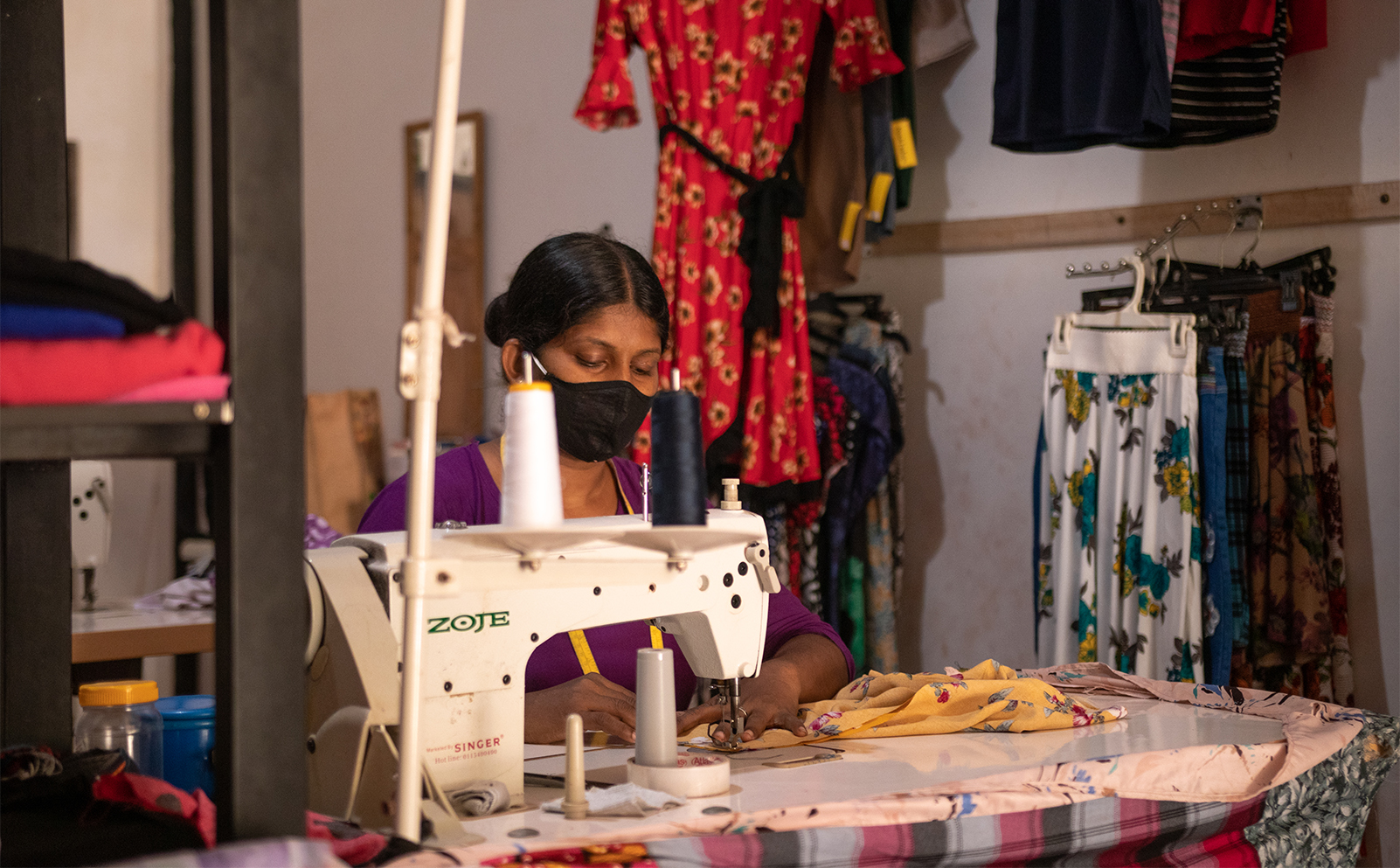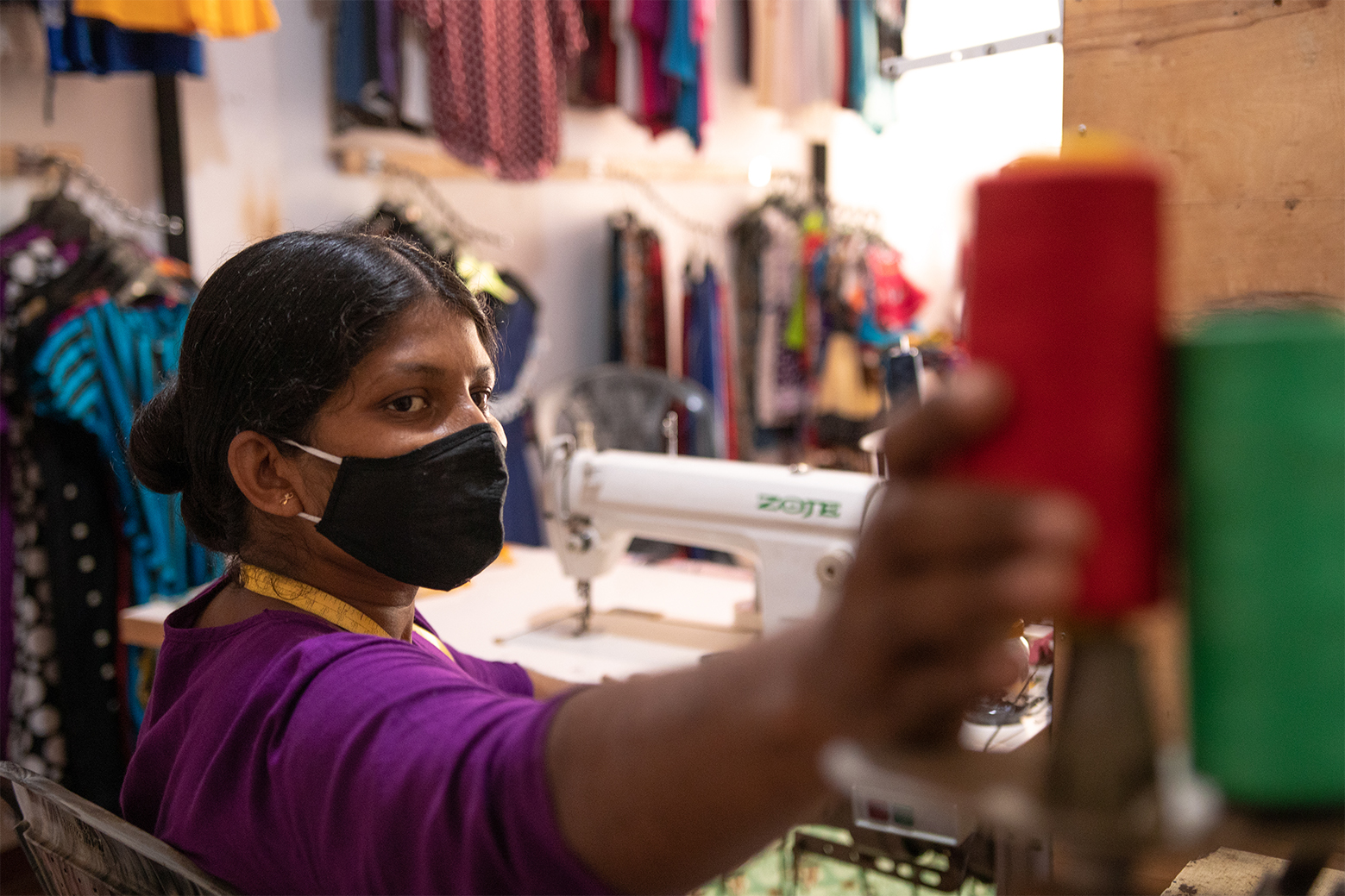A stitch in time gives hope to Ajantha

Ajantha Priyadharshini, 37, has always supported her family by stitching. When she was young she mended her own clothes so that her parents will not have to spend on new ones; when she started her own family, she stitched to provide for her two sets of twins - three girls and one boy.
After marriage, she worked in a garment factory stitching from morning to night. She learnt about the machines and she learnt more about stitching. Her husband was a farmer and during off seasons he did odd jobs to support the family. Two of them managed through the first set of twins – two girls.
"I saved up some money and bought a machine," says Ajantha, "And I started to stitch at night while working at the factory during the day. People began to bring me material and designs and I stitched accordingly."
Whatever the shape, whatever the size, Ajantha did a perfect and neat job. With the arrival of the second set of twins – a girl and a boy – and with repeated failure in farming, the family was stretched economically.
Understanding her situation, a relative offered Ajantha a small shop space. They did not charge her a rent but she paid for the electricity. It was during this time that World Vision came to know her.
"With World Vision’s help I managed to buy different material on bulk to stitch new clothes for selling," she says, "people who brought their own material saw the material I had and would ask me to stitch another with it. It brought in a good income and my income began to grow."
With the income she purchased three more machines. With more machines, she could do big orders employing a few women. She received orders to stitch T shirts for a factory in Moratuwa, and for preschool and school uniforms from the schools close by.
However, with Covid-19 sending the country into a lockdown, Ajantha’s business was badly affected. The orders stopped and people stopped buying or stitching new clothes.

"I had absolutely no income and few of us neighbours started to collect tamarind from the trees and sell to support our families. That is how I coped during that time," she says.
She waited eagerly for the lockdown to be lifted. "The night they announced the lifting of the curfew I had everything ready and went to bed. I woke up by 3:30 a.m. prepared food for my children and came to the shop by 5:00 a.m. to start stitching," says Ajantha.
Soon a teacher who was one of her regular customers offered her a shop space in the town. Ajantha shifted her machines there and has been stitching to her heart’s content since.
"She told me I could pay the rent once my business starts to stabilise again," she says. Her business has slowly picked up and the location has brought many more customers. Her husband also helps out at the shops and to take care of the children.
"I love this job and I’m grateful because it feeds my children and keeps them in school," she says, "It was with the support of World Vision that I could take that first leap and I will always cherish that."
